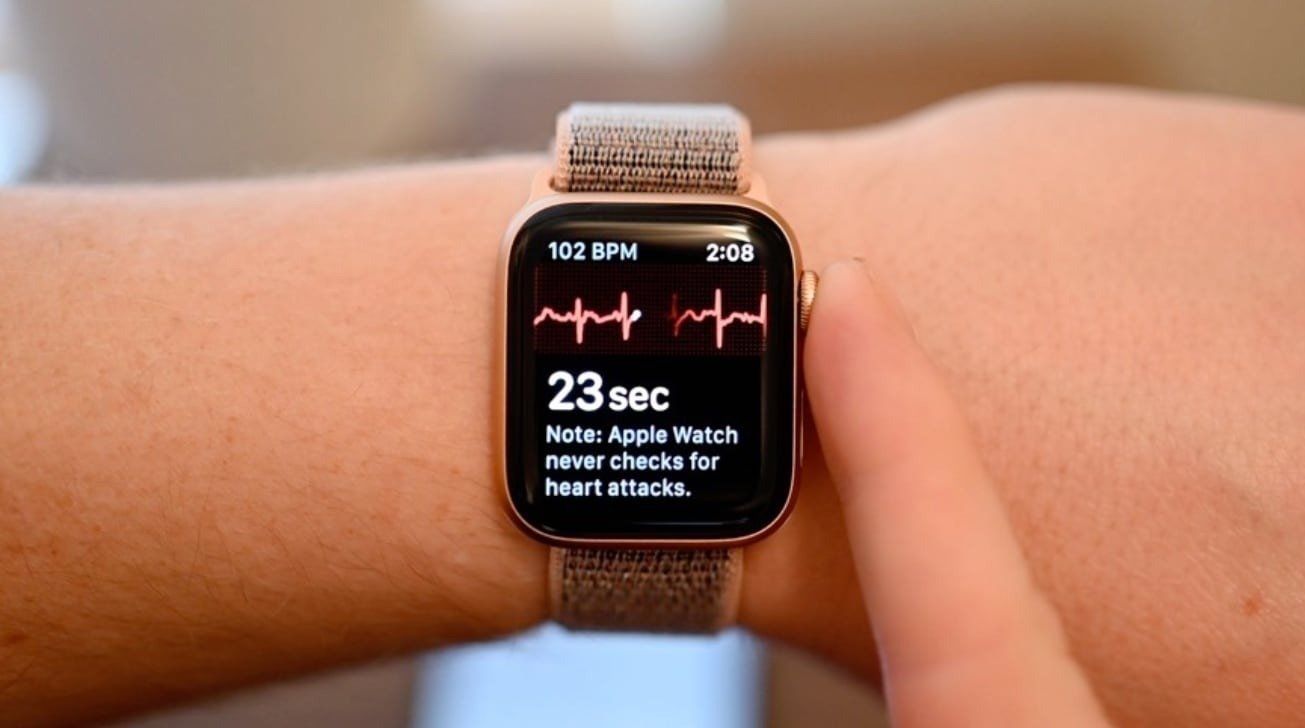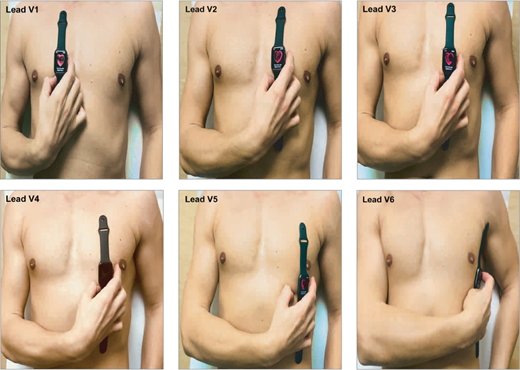Apple Watch ECG could be a good early heart attack detection system
A new research paper suggests that the Apple Watch could serve as an early detection system for a heart attack, helping to get people to the hospital sooner.

Apple Watch ECG
Researchers at the Texas Heart Institute have published a new paper in the Texas Heart Institute Journal, first spotted by MyHealthyApple, detailing their exploration of using an Apple Watch electrocardiogram as an early detection system.
According to the researchers, health outcomes after a heart attack depend on the time elapsed before treatment. Because of that, early treatment after a heart attack is key for better outcomes. The issue is that average hospital arrival times are between 1.5 hours and 6 hours.
Current medical practice calls for a 12-lead ECGs to diagnose heart attacks, which are also known as myocardial infarctions (MI). Although the 12-lead ECG relies on multiple nodes attached to the body, the team notes that the Apple Watch may be able to mimic that functionality.
By placing an Apple Watch on different parts of the body, researchers note that the 12-lead ECG could be used to predict whether a heart attack has occurred. The goal isn't to replace a standard clinical 12-lead ECG, but to provide early detection capabilities so that patients can get to a hospital sooner.

Credit: Texas Heart Institute
Current research on the Apple Watch's ability to detect a heart attack is limited, the team notes. More research is needed before the Apple Watch can reliably be used as an early detection system.
There are also technical limitations to the wrist-worn device that could preclude it from usefulness as a standard practice. For example, an Apple Watch can only record one lead at a time, while clinical 12-lead ECGs record multiple leads simultaneously.
Going forward, the team believes that more work should be placed on making the Apple Watch ECG procedure "less complex." That's because using the Apple Watch as an early detection system will rely heavily on educating users to do so.
Without user awareness, the feature won't be able to detect a heart attack when it matters most. The team notes that "Finding an effective way to educate a large population on how to use these smart devices and the importance of using them daily is challenging."
"The Apple Watch shows promise for detecting MI. Current studies have shown that it can record multiple-lead ECG signals and detect the ST change during MI," the team wrote. "However, there are still many limitations to achieving the objective of early MI detection, and more clinical data are needed."
Read on AppleInsider

Apple Watch ECG
Researchers at the Texas Heart Institute have published a new paper in the Texas Heart Institute Journal, first spotted by MyHealthyApple, detailing their exploration of using an Apple Watch electrocardiogram as an early detection system.
According to the researchers, health outcomes after a heart attack depend on the time elapsed before treatment. Because of that, early treatment after a heart attack is key for better outcomes. The issue is that average hospital arrival times are between 1.5 hours and 6 hours.
Current medical practice calls for a 12-lead ECGs to diagnose heart attacks, which are also known as myocardial infarctions (MI). Although the 12-lead ECG relies on multiple nodes attached to the body, the team notes that the Apple Watch may be able to mimic that functionality.
By placing an Apple Watch on different parts of the body, researchers note that the 12-lead ECG could be used to predict whether a heart attack has occurred. The goal isn't to replace a standard clinical 12-lead ECG, but to provide early detection capabilities so that patients can get to a hospital sooner.

Credit: Texas Heart Institute
Current research on the Apple Watch's ability to detect a heart attack is limited, the team notes. More research is needed before the Apple Watch can reliably be used as an early detection system.
There are also technical limitations to the wrist-worn device that could preclude it from usefulness as a standard practice. For example, an Apple Watch can only record one lead at a time, while clinical 12-lead ECGs record multiple leads simultaneously.
Going forward, the team believes that more work should be placed on making the Apple Watch ECG procedure "less complex." That's because using the Apple Watch as an early detection system will rely heavily on educating users to do so.
Without user awareness, the feature won't be able to detect a heart attack when it matters most. The team notes that "Finding an effective way to educate a large population on how to use these smart devices and the importance of using them daily is challenging."
"The Apple Watch shows promise for detecting MI. Current studies have shown that it can record multiple-lead ECG signals and detect the ST change during MI," the team wrote. "However, there are still many limitations to achieving the objective of early MI detection, and more clinical data are needed."
Read on AppleInsider

Comments
Detect: Something is wrong.
Diagnose: This is what is wrong.
An electrocardiogram can be used to diagnose most infarctions. Most walls of the heart are fed almost exclusively by one artery each, so when that artery is blocked, you get different results in V1 through V6 which show that wall not contracting properly. That's enough to diagnose a blockage in a particular cardiac artery. Cardiac echos are more often used to diagnose blood issues like physical flaws in the septa or valves, but they are sometimes used to confirm infarction.